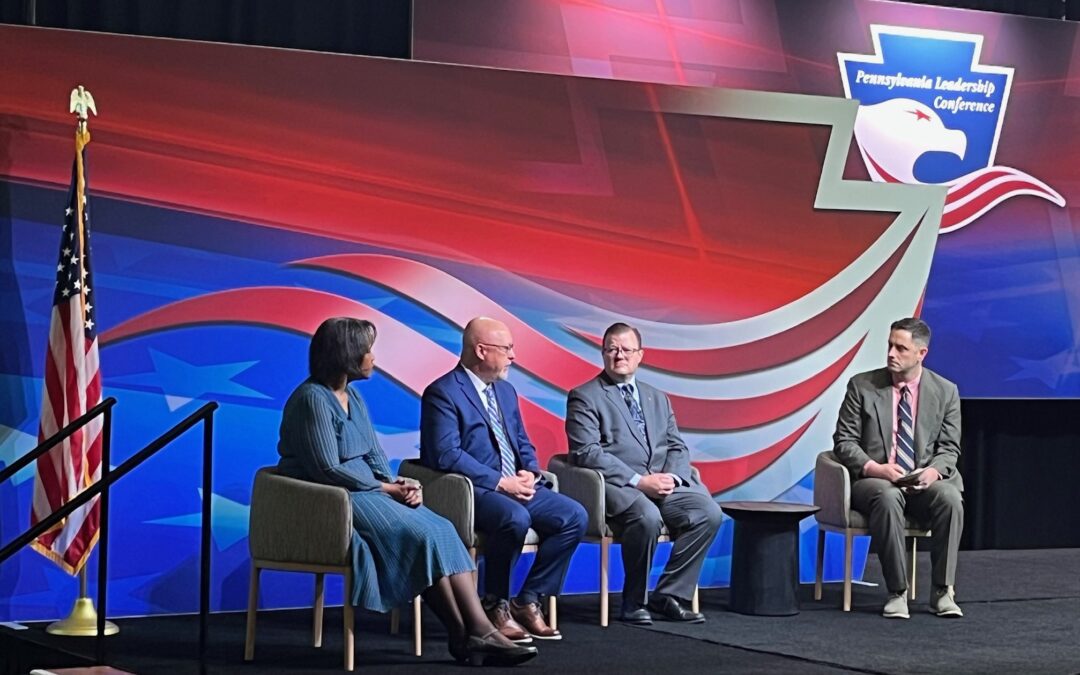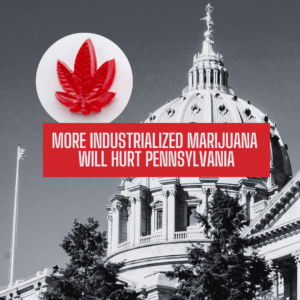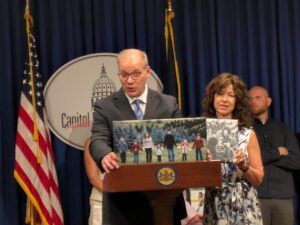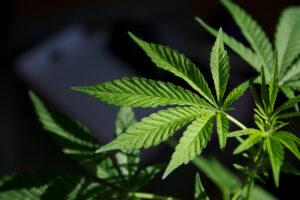As Pennsylvania considers legalizing the commercial sale of marijuana for recreational use, a growing chorus of voices is urging our leaders to pause—and listen. At the 2025 Pennsylvania Leadership Conference, the panel discussion “Truth on Weed: Examining the Harm with Marijuana Legalization”—hosted and moderated by Dan Bartkowiak, Chief Strategy Officer at Pennsylvania Family Institute—brought together expert perspectives on the devastating consequences full retail legalization would have for our families, communities, economy, and public health.
This conversation, part of PA Family’s broader commitment to bringing a pro-family voice into Pennsylvania’s policy debates, illuminated hard truths about marijuana commercialization that many lawmakers are ignoring.
The evidence—and the experience from states like Colorado—is sobering.
“There is no right way to do a wrong thing. And this is wrong for Pennsylvania.”
—Judge Cheryl Allen
The Human Cost: From Families to Fatalities
Dr. Tom Copeland, the former director of research at the Centennial Institute—which conducted a major study on marijuana’s impact in Colorado, laid out the real-world effects of legalization after more than a decade in practice:
- For every $1 in marijuana tax revenue, $4.50 is spent to mitigate the social costs.
- ER visits, poison control calls, traffic fatalities, and mental health crises have all increased.
- Roughly half of marijuana poison control calls involve children under five.
- Colorado now ranks #1 in the nation for cocaine use, revealing a concerning correlation between marijuana use and progression to harder drugs.
Copeland shared that two-thirds of Coloradans admit to driving while high, and that downtown Denver has become so consumed with crime and drug-related homelessness that many avoid it altogether.
“The actual human cost is so much more important…high schoolers who commit suicide under the influence of THC, children going to the ER because they’ve been poisoned by marijuana gummies. There are real people on the receiving end of all this.”
—Dr. Tom Copeland
A Threat to Youth and the Next Generation
Judge Cheryl Allen, with decades of experience in Pennsylvania’s juvenile courts, highlighted how marijuana use devastates families—particularly communities of color.
“The marijuana of today is far more potent than the marijuana of the ‘90s. It’s not a gateway drug anymore—it is highly addictive, standing on its own.” —Judge Cheryl Allen
Judge Allen warned that today’s high-potency marijuana fuels cognitive decline, school dropout, and psychosis in youth. Her courtroom experience confirms what research now shows: marijuana addiction contributes to mental health breakdowns, family instability, and rising crime.
“Our children are already behind academically. This will only exacerbate the problem…
The government should be protecting its citizens, not promoting addiction for revenue.”
One of the most sobering warnings came from David Taylor of the Pennsylvania Manufacturers Association, who compared the mental health toll of today’s marijuana use to the long-known risks of smoking:
“Psychosis is to marijuana as cancer is to tobacco. That some subset of users is going to come down with that condition. I mean, that’s just a fact.”
—David Taylor
As more high-potency THC products are being commercialized in legalized states, more evidence is coming forward that links marijuana use to mental health problems. In the New York Times article, As America’s Marijuana Use Grows, So Do The Harms, the connection between psychosis and marijuana is underscored.
“Not everyone who smokes cigarettes develops lung cancer, and not everyone who has lung cancer smoked cigarettes,” said Dr. Deepak Cyril D’Souza, a professor at Yale School of Medicine and a staff psychiatrist at VA Connecticut Healthcare Systems. “But we now know, after denying it for many, many decades, that the association between the two is very important. The same is true for cannabis and psychosis.”
Workforce Consequences: Making a Bad Situation Worse
From an economic perspective, Taylor issued a stark warning. Legalized recreational marijuana would deepen Pennsylvania’s workforce crisis, already strained by a lack of qualified workers.
“One of the contributing factors is that people can’t pass a pre-employment drug screening.”
Taylor explained that in high-skill, high-risk industries like manufacturing, safety is paramount. Jobs that involve machinery, heat, chemicals, or precision instruments require workers who are fully alert and drug-free. Legalizing marijuana would shrink the talent pool, sidelining potential workers and jeopardizing safety.
“We’re talking about family-sustaining jobs. People don’t realize they are making themselves unemployable by being marijuana users.”
The contradiction in state priorities is glaring: Governor Shapiro is pushing for both marijuana commercialization and workforce development in the same budget.
“If you can’t pass the drug test, we can’t have you on the plant floor. My nightmare scenario is the Commonwealth working against workforce development and workplace safety.”
—David Taylor
Commercialization = Normalization
Panelists emphasized that what’s being proposed isn’t simply decriminalization—it’s mass commercialization, complete with advertising targeting youth, THC gummies resembling candy, and THC concentrations of up to 90%.
“We’re being asked to consider an industry whose success depends upon creating more addicts.”
—Judge Cheryl Allen
In Colorado, pot shops now outnumber Starbucks and McDonald’s combined, and billboards and retail signs openly market to kids. Low-income neighborhoods are especially targeted, burdening families with the financial and emotional weight of addiction.
“You’re targeting kids and folks who really can’t afford to be addicted. Why would we encourage that?”
—Dr. Tom Copeland
Warnings from Law Enforcement and Health Experts
Dozens of medical and law enforcement organizations oppose full legalization, including the PA Fraternal Order of Police, PA Chiefs of Police, and the American Academy of Pediatrics. Why? Because they live with the consequences.
“The thing all those organizations have in common is that they function in the real world.”
—David Taylor
The data shows that marijuana-related hospitalizations, driving accidents, workplace injuries, and youth addiction all rise with legalization. Yet proponents continue to ignore the science.
“They’re not following the science. They’re ignoring it—and getting away with it.”
—Dr. Tom Copeland
What About the Black Market?
Proponents argue that legalization will eliminate the black market. But experience says otherwise.
“In Colorado, the black market is thriving. If anything, legalization made it worse.”
—Dr. Tom Copeland
A legal system layered with taxes and regulations creates a parallel illegal one, especially when tax rates incentivize off-the-books sales. In short, legalization does not eliminate criminal activity—it creates new forms of it.
A False Promise of Revenue
Despite initial revenue spikes, marijuana tax revenues in Colorado have fallen sharply, dropping by over 40% in the past five years. Meanwhile, the state deficit grows, and public services are strained.
“We were told marijuana taxes would fund schools and roads. We got neither.”
—Dr. Tom Copeland
A Call to Courage
This isn’t a libertarian debate about what people do in private. It’s about the public consequences of a government-endorsed addictive industry.
The panel made it clear: Pennsylvania still has a choice.
“Don’t do it. There’s no right way to do a wrong thing.”
—Judge Cheryl Allen
We must pursue criminal justice reform, public health care improvements, and workforce development without selling out our future to an industry built on addiction.
“The only winning move is not to play.”
—David Taylor
—
📺 Watch the full panel discussion below to hear these voices directly and see what’s really happening in states like Colorado. For more information, visit TruthOnWeed.com.





Is cannabis not considered to be more carcinogenic than tobacco?